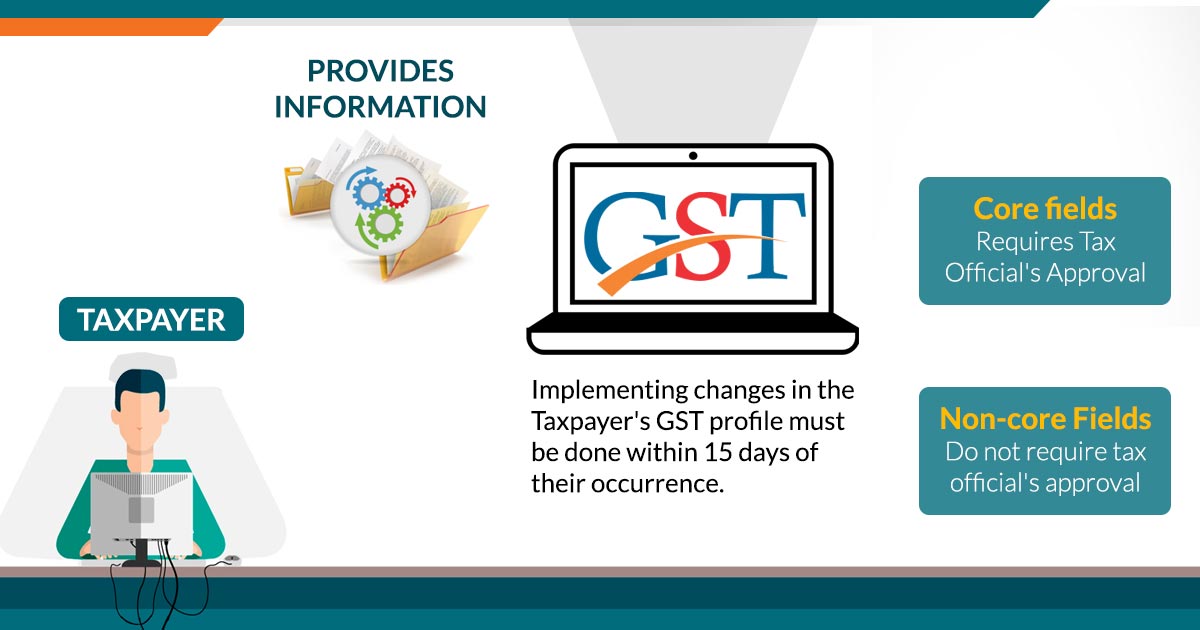From Beginning To End: A Thorough Introduction of GST Registration and Just How to Successfully Register Your Company
Navigating with the intricate procedure of GST registration can be an important step for any organization wanting to establish compliance and authenticity in the market. Why choose CFO Account & Services for GST registration in Singapore. From comprehending the basic principles of GST to satisfying the qualification standards and gathering the needed documentation, the trip towards successful registration can commonly look like an overwhelming task. Nevertheless, with the appropriate guidance and understandings, companies can streamline this procedure and unlock the advantages that include being a signed up entity.
Understanding GST and Its Value
Understanding the Product and Solutions Tax (GST) and its value is crucial for businesses operating in economic climates where this taxation system is applied. GST is a value-added tax levied on the supply of solutions and items, developed to improve the indirect taxes framework. It changes several plunging tax obligations levied by the state and central governments, producing a unified market across the nation. Among the key advantages of GST is the elimination of the cascading effect of taxes, resulting in raised performance in the tax system. By permitting companies to claim input tax obligation credit ratings on the tax obligation paid on acquisitions, GST guarantees that taxes are determined only on the value added at each stage of the supply chain.
Additionally, GST promotes compliance and transparency in the tax regime, lowering tax evasion and boosting government earnings. It streamlines tax obligation management and conformity for businesses by giving a common platform for tax declaring and repayment. On the whole, a comprehensive understanding of GST is essential for businesses to properly browse the intricacies of the tax obligation system and make sure compliance with the legislation.
Qualification Criteria for GST Registration
To sign up for GST, services must fulfill particular qualification standards outlined by the tax authorities. The primary demand for GST enrollment is that the business's accumulated turnover exceeds the limit set by the federal government, which differs by state. Furthermore, specific organizations, such as those included in inter-state supply of solutions or items, informal taxable persons, and non-resident taxed individuals, are needed to register for GST regardless of their turn over.
Moreover, organizations associated with providing goods or solutions with ecommerce platforms are additionally mandated to register for GST, regardless of their turn over. Moreover, companies that were signed up under the previous tax obligation program, such as barrel, excise obligation, or service tax obligation, have to shift their enrollment to GST. Sticking to these qualification standards is critical for businesses looking for to adhere to the GST laws and avoid any type of charges for non-compliance.
Papers Required for GST Enrollment
Furthermore, files validating the identification and address of the promoters or partners associated with business, such as frying pan card, Aadhaar card, or key, are vital for GST enrollment. Checking account statements or canceled cheques presenting the name of the company, account, and address number are likewise obligatory to verify the savings account details supplied throughout enrollment.
Making certain all the essential records remain in order and easily available will streamline the GST enrollment process and help businesses stay clear of issues or delays.
Online Enrollment Refine for GST

After completing the form, sustaining documents need to be posted according to the guidelines provided. These files typically include evidence of business enrollment, address evidence, financial institution statements, and identity proof Going Here of business owner. It is necessary to make certain that all records are clear, valid, and uploaded in the defined layout to avoid delays in the registration process.
Once the application and files are submitted, organizations can track the status of their GST registration online. If there are no issues or additional details called for, the GST registration certification will be provided electronically, marking the successful completion of the on the internet enrollment process.
Post-Registration Compliance and Tips

Furthermore, organizations have to keep proper books of accounts, including invoices, bookkeeping records, and monetary statements, to sustain the information provided in GST returns. Regular audits and reconciliations ought to be carried out to make sure data accuracy and compliance with GST regulations. Companies must stay upgraded on any kind of modifications in GST policies, prices, or conformity procedures to make necessary changes without delay. Looking for expert help from tax experts or accounting professionals can also help companies navigate complex GST compliance requirements successfully. By staying aggressive and vigilant in post-registration compliance, companies can prevent penalties, maintain great standing with tax obligation authorities, and foster operational effectiveness.
Final Thought
In verdict, the procedure of GST registration is important for companies to follow tax regulations and run legally. By understanding the qualification standards, collecting the needed papers, and completing the on the internet registration procedure, businesses can efficiently register for GST. It is essential to remain compliant with useful source post-registration needs and look for professional support when needed to ensure smooth procedures.
Organizations that were signed up under the previous tax obligation regimen, such as Barrel, import tax task, or solution tax, must transition their enrollment to GST. The key files required for GST enrollment include proof of service enrollment or incorporation such as the Certification of Unification, partnership act, or registration certificate.Upon successful conclusion of the GST enrollment process, companies must immediately stick to post-registration conformity demands to preserve governing compliance and guarantee smooth procedures.In verdict, the process of GST enrollment is crucial for companies to conform with tax regulations and operate legally. By understanding the qualification criteria, gathering the necessary records, and finishing the on-line registration process, companies can effectively register for GST.
Comments on “Boost Your GST Registration Experience in Singapore with CFO Account & Services: Here's Why”